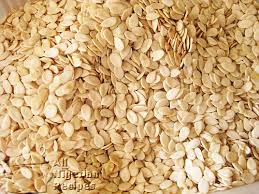Mango Juice Production in Nigeria; The Feasibility Report.

Mango juices are produced from mango fruits. Fruit generally has been defined as the ripened ovary of the flower, with or without other associated parts. It can be classified broadly into two, namely, juicy and pulpy fruits. Juicy fruits include: orange, lemon, lime, tangerine, tangelo, pumelo, and so on while pulpy fruits include pineapple, mango, pawpaw, banana, cashew, guava, breadfruits, avocado pear and so on.
Standard Organization of Nigeria (SON) defines fruit juice as the unfermented but fermentable natural juice intended for direct consumption obtained by a mechanical process from sound, matured fruits preserved by physical or chemical means. The juice may be turbid or clear (as in the case of clarified juice).
Mangoes are grown abundantly in many parts of Nigeria but most of these fruits are lost after harvesting. To reduce post-harvest losses of mango, the Federal Institute of Industrial Research Oshodi has developed and perfected process technology for production of juice from Nigerian fruits with the overall objective of conserving foreign exchange, stimulating industrial development, creating employment and reducing poverty.
Fruit juices are served at occasions such as, wedding, burial, house warming, seminars, workshops, and so on. The national demand for fruit juices is estimated at 550 million litres, while current supply is less than 25% of the demand. Popular brands of fruit juices in Nigerian markets are: Frutta, Edge, 5 Alive, Chivita, Fumman, Dansa, Fan juice, Chi Exotic, Lloyd’s fruit squeeze, Dudu, Cyway natural drink, etc. Common packaging is tetra pak, can, bottle (plastic and glass) and pouches.
The recommended minimum daily requirement of fruit juice has been estimated at 75 mg. Our present intake in Nigeria is still below this daily requirement.
Fresh fruit juice is one of the chief sources of vitamin C (Ascorbic acid), required for the proper functioning of body’s inter cellular materials. It prevents some diseases from occurring. Deficiency of vitamin C leads to scurvy (bleeding of teeth gums) and failure of the body to form corrective tissue fibres.
In this regard, establishment of fruit juice processing factory will contribute immensely towards the improvement of our health care delivery.
Establishment of fruit juice processing factory will greatly solve the problems of food preservation in Nigeria. This feasibility report is to examine the financial viability or otherwise of establishing a mango juice production plant in Nigeria.
The proposed production volume is three thousand (3,000) litres per day at one hundred percent (100%) capacity utilization. Input – Output Ratio was assumed at 1:0.6 (or 60% yield), 60% Juice content. The plant would operate at eighty percent (80%) of the installed capacity for a single shift of eight (8) hours per day for three hundred (300) working days per annum and producing 1,440,000 bottles of fifty (50) cl.
Table of Contents
EXECUTIVE SUMMARY 1.0 Business Overview 1.1 Description of the Business 1.2 Vision and Mission Statement 1.3 Business Objective 1.4 Critical Success Factor of the Business 1.5 Current Status of Business 1.6 Description of the Business Industry 1.7 Contribution to Local and National Economy 2. Marketing Plan 2.1 Description of product 2.2 Product Packaging and delivery 2.3 The Opportunity 2.4 Pricing Strategy 2.5 Target Market 2.6 Distribution and Delivery Strategy 2.7 Promotional Strategy 2.8 Competition 3. Production Plan 3.1 Description of the Location 3.2 Raw Materials 3.3 Production Equipment 3.4 Production Process 3.5 Production Cost 3.6 Stock Control Process 3.7 Pre-Operating activities and expenses 3.7.1 Operating Activities and Expenses 3.8 Project Implementation Schedule 4.0 Organizational and Management Plan 4.1 Ownership of the business 4.2 Profile of the promoters 4.3 Key Management Staff 4.3.2 Management Support Units 4.4 Details of salary schedule 5. Financial Plan 5.1 Financial Assumption 5.2 Start -up Capital Estimation 5.3 Source of Capital 5.4 Security of Loan 5.5 Loan Repayment Plan 5.6 Profit and Loss Analysis 5.7 Cash Flow Analysis 5.8 Viability Analysis 6.0 Business Risk and mitigation factor 6.1 Business Risks 6.2 SWOT Analysis
Project Specification:
Additional Info
Get this Report
Direct bank transfer
To order the report, Please do pay the sum of ₦30,000 into
Account Name : Foraminifera Market Research Ltd
Account Number : 274 20 569 37
Account Name : Foraminifera Market Research Ltd
Account Number : 101 76 603 95
Account Name : Foraminifera Ventures
Account Number : 011 66 066 32
Make your payment directly into our bank account. Please use your Order ID as the payment reference. Your order will not be shipped until the funds have cleared in our account.
Instructions
After payment call us on 01 -29 52 413 / 08033782777 or email us at foraminiferamarketresearch@yahoo.com with the payment details. After payment confirmation, the soft copy of the report would be sent to you within 24 hours.



